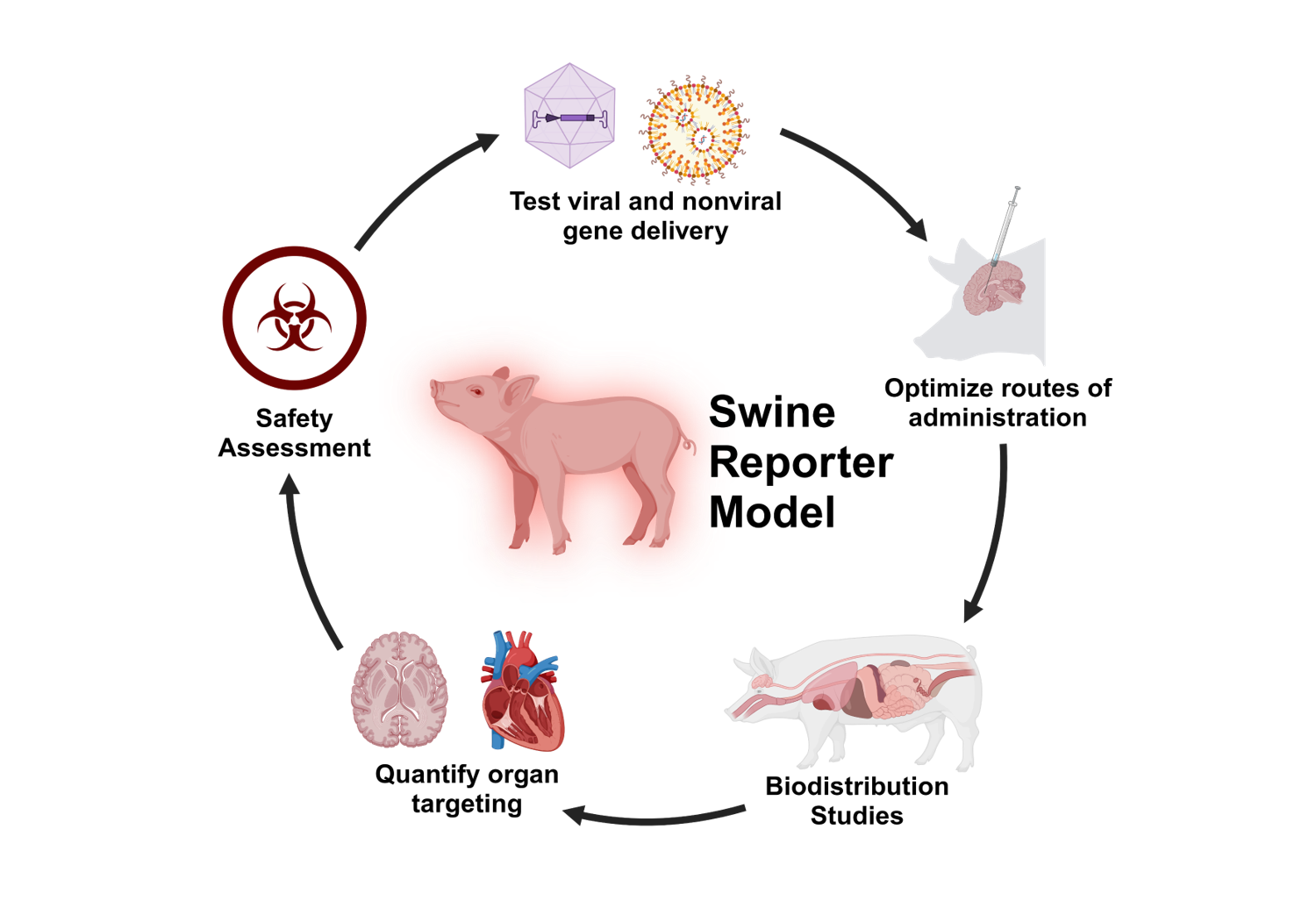Recombinetics Swine Models and Custom Models
Recombinetics has years of experience creating swine models of human diseases for biomedical research. We have built a platform using advanced gene editing technologies for precise and efficient creation of disease models for business partners, academic institutions, and internal research projects. We leverage our expertise to offer customizable models in large and minipig breeds. Whether humanizing a gene, multiplexing, or creating multiple somatic cell edits, work with our team to bring an idea from in silico design to animals on the ground.
| Indication | Model* | Description |
|---|---|---|
| Gene Therapy | Swine Reporter Model-1 (SRM-1) | Cre or CRISPR activated tdTomato |
| Swine Reporter Model-2 (SRM-2) | Base Editor and Prime Editor activated tdTomato |
|
| Cancer and Rare Disease | Neurofibromatosis type 1 (NF1) | Heterozygous inactivation of NF1 |
| Neurofibromatosis type 2 (NF2) | Heterozygous inactivation of NF2 |
|
| Glioblastoma | Induced w/ human mutations |
|
| Hepatocellular carcinoma | Induced w/ human mutations |
|
| Microvillus Inclusion Disease | MYO5B-P660L | |
| Cardiovascular | Hypercholesterolemia | PCSK9-D374Y and LDLR-/- Ossabaw swine |
| Dilated cardiomyopathy (DCM) | RBM20-R636S Homozygous or Heterozygous |
|
| Diabetes | Metabolic Syndrome/Obesity | Ossabaw swine on western diet |
| Metabolic Syndrome with Atherosclerosis | Hypercholesterolemic Ossabaw swine on western diet |
|
| Hepatic | Alpha-1 antitrypsin deficiency | PiZ allele |
| Phenylketonuria | Inactivating mutations in PKU |
|
| Immunology | Immunodeficiency | RAG2/IL2Rg KO |
| Renal | Autosomal dominant polycystic kidney disease (ADPKD) | Inducible PKD1 inactivation |
| Autosomal recessive polycystic kidney disease (ARPKD) | PKHD1 inactivating mutations including T36M |
|
| Skeletal | Osteogenesis Imperfecta | COL1A1-R235X |
| Custom Modeling | Swine Breeds Available | Description |
| Yucatan (Mini-pig) | Partner for custom pig models | |
| Large White | ||
| Ossabaw |
*Swine Model Tissues Available upon request
Recombinetics Swine Reporter Models
The Swine Reporter Models (SRM-1 and SRM-2) are large animal models designed to track gene delivery to any tissue or cell in the body. Fluorescent markers are activated by gene editing in as little as one week, extending to months or years even with non-viral vectors.
